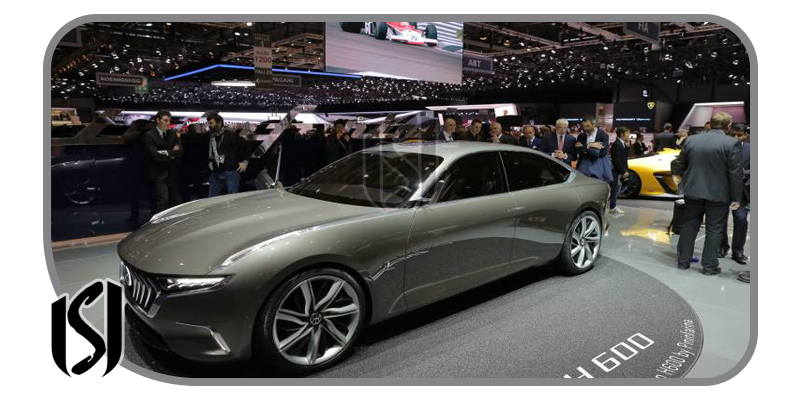
Car brands in Turkiye
- هلدینگ ترکیه با ما
- ژوئن 20, 2023
- BlogEN
- Car brands in Turkiye, franchise
- 0 دیدگاه
Car brands that are looking for new representatives in Turkiye
Turkiye has emerged as a significant player in the global automotive industry, with several domestic car brands gaining prominence over the years. As these Turkish automakers continue to expand their reach and capture international markets, they are actively seeking new dealerships to strengthen their distribution networks. In this article, we will explore the Turkish car brands that are currently looking for new dealers and provide up-to-date information on their search for dealership partners.
1. Tofaş (Fiat-Tofaş):
Tofaş, a joint venture between Turkiye’s Koç Holding and Italy’s Fiat Chrysler Automobiles (FCA), is one of the leading automotive manufacturers in Turkiye. With a diverse range of vehicles, including passenger cars, light commercial vehicles, and electric vehicles, Tofaş has a strong presence both domestically and internationally. Tofaş is constantly on the lookout for new dealerships to expand its global market share.
2. Oyak-Renault:
Oyak-Renault is another significant player in the Turkish automotive industry. It is a joint venture between Oyak Group, a Turkish military pension fund, and Renault Group. Oyak-Renault produces a wide range of vehicles, from compact cars to commercial vehicles. As part of its growth strategy, Oyak-Renault is actively seeking new dealership partners to bolster its distribution channels.
3. Hyundai Assan:
Hyundai Assan, a joint venture between Hyundai Motor Company and Turkiye’s Kibar Holding, manufactures Hyundai vehicles in Turkiye. It has a state-of-the-art production facility in İzmit and produces various models tailored to the Turkish and European markets. As Hyundai continues to expand its presence globally, Hyundai Assan is actively looking for new dealerships to further strengthen its market position.
4. Ford Otosan:
Ford Otosan is a joint venture between Ford Motor Company and Turkiye’s Koç Holding. It is one of the leading automotive companies in Turkiye, specializing in the production of commercial vehicles and pickups. Ford Otosan’s commitment to quality and innovation has made it a sought-after brand. To enhance its distribution network, Ford Otosan is keen on partnering with new dealerships.
Turkish car brands, including Tofaş, Oyak-Renault, Hyundai Assan, and Ford Otosan, are actively seeking new dealership partners to expand their global market reach. These brands have established themselves as prominent players in the Turkish automotive industry and are now looking to leverage their expertise and product offerings in international markets. By partnering with new dealerships, these Turkish automakers aim to enhance their distribution networks and solidify their positions as global automotive manufacturers.
Note: It’s essential to regularly verify and update the information provided above, as the business landscape is subject to change.
The commercial department of the collection (With us) is ready to answer your questions and provide more information about cooperation with car brands in Turkiye.
Profits and benefits of obtaining a car dealership in Turkiye
Operating a car dealership can be a lucrative business venture, particularly when representing a popular brand in a thriving market like Turkiye. This article aims to provide a comprehensive and up-to-date analysis of the potential financial gains and advantages associated with acquiring a car dealership for a brand in Turkiye.
1.Market Overview:
Begin the article by providing an overview of the Turkish automotive market, highlighting its size, growth potential, and key players. Discuss Turkiye’s strategic geographical location, its robust economy, and the increasing demand for automobiles. Incorporate relevant statistics and market forecasts to support the analysis.
2.Brand Selection and Franchise:
Explain the importance of brand selection and the criteria for choosing the right car brand for dealership in Turkiye. Discuss factors such as brand reputation, product lineup, market demand, and existing competition. Highlight the significance of obtaining a franchise from the brand, ensuring credibility, access to marketing support, and product availability.
3.Financial Investment:
Discuss the initial financial investment required to establish a car dealership in Turkiye. Include aspects such as franchise fees, inventory costs, facility setup, staffing, marketing expenses, and legal considerations. Present a detailed breakdown of the investment required and provide examples or case studies if available.
4.Revenue Streams:
Outline the various revenue streams associated with a car dealership in Turkiye. Include new car sales, used car sales, service and maintenance, spare parts, accessories, and potential ancillary services. Discuss the growth potential of each revenue stream, supported by market trends and projections.
5.Profit Margins:
Explain the profit margins typically associated with car dealerships in Turkiye. Discuss the factors influencing profitability, such as pricing strategies, volume of sales, cost control measures, and aftersales services. Provide examples or industry benchmarks to illustrate the potential profit margins.
6.Operational Costs:
Detail the operational costs involved in running a car dealership in Turkiye. Include expenses such as rent or mortgage, utilities, salaries and commissions, advertising, insurance, and maintenance. Emphasize the importance of effective cost management to maximize profitability.
7.Government Incentives and Taxation:
Highlight any government incentives or tax benefits available for car dealerships in Turkiye. Discuss tax regulations, import duties, VAT, and any specific incentives or subsidies provided by the government to promote the automotive industry. Include recent updates or changes to the regulations.
8.Challenges and Risks:
Acknowledge the potential challenges and risks associated with operating a car dealership in Turkiye. Discuss factors such as intense competition, market fluctuations, economic uncertainties, changing consumer preferences, and potential regulatory changes. Provide insights on risk mitigation strategies and contingency plans
9.Case Studies and Success Stories:
Include relevant case studies or success stories of existing car dealerships in Turkiye. Showcase examples of dealerships that have achieved significant financial success, market recognition, or innovative business practices. Highlight their strategies and best practices that can be emulated.
Summarize the key findings of the article, emphasizing the financial prospects and advantages of acquiring a car dealership for a brand in Turkiye. Reiterate the potential revenue streams, profit margins,and government incentives. Encourage readers to conduct further research, seek professional advice, and explore opportunities in the Turkish automotive market.
In order to get more information and communicate with the best immigration agency, the business department of the group (With us), you can contact the following number: Our group’s business experts are ready to answer your questions and provide detailed and comprehensive information about obtaining a car brand representative in Turkiye
Exclusive Dealership Conditions for Car Brands in Turkiye
The automotive industry in Turkiye has experienced significant growth and development in recent years, attracting the attention of various international car manufacturers. With a burgeoning market and strategic location, many brands seek to establish a presence in Turkiye through exclusive dealership agreements. The purpose of this article is to provide a comprehensive and up-to-date analysis of the prevailing conditions for obtaining representation rights in Turkey.
1.Overview of the Turkish Automotive Market:
Turkey has emerged as an important player in the global automotive industry, both as a manufacturer and a consumer market. The country offers favorable conditions such as a skilled workforce, competitive production costs, and a growing domestic demand for automobiles. These factors have attracted numerous car manufacturers, leading to increased competition among brands seeking dealership opportunities.
2.Legal Framework and Regulations:
In Turkiye, the regulations governing dealership agreements are primarily established under the Turkish Commercial Code and the Block Exemption Communiqué on Vertical Agreements. The Block Exemption Communiqué, based on European Union regulations, provides a framework for vertical agreements, including exclusive distribution contracts in the automotive sector.
3.Competition and Anti-Trust Considerations:
Competition law plays a crucial role in determining the conditions for obtaining exclusive dealership rights in Turkiye. The Turkish Competition Authority (TCA) is responsible for enforcing and regulating competition rules. The TCA aims to prevent anti-competitive practices, ensuring fair competition and consumer welfare. Therefore, car manufacturers must comply with competition law and avoid engaging in any anti-competitive behavior that could restrict market competition.
4.Selection Criteria for Exclusive Dealerships:
While there is no explicit requirement for car manufacturers to offer exclusive dealership rights in Turkiye, the selection of dealerships is generally based on various factors. Manufacturers assess potential dealers based on their financial stability, market knowledge, infrastructure capabilities, and commitment to providing quality customer service. Additionally, manufacturers may consider the geographical location and market potential of the dealership applicant.
5.Negotiation and Agreement Process:
The negotiation and agreement process for obtaining exclusive dealership rights in Turkiye typically involves detailed discussions between the car manufacturer and the potential dealer. Terms such as territorial exclusivity, sales targets, marketing support, after-sales services, and warranty policies are among the key aspects that are negotiated and defined in the dealership agreement.
6.After-sales Support and Service Network:
Car manufacturers in Turkiye are expected to establish a robust after-sales support and service network. This network ensures that customers have access to maintenance and repair services, genuine spare parts, and technical assistance. Manufacturers usually require their dealers to meet specific standards and invest in service infrastructure to provide a satisfactory after-sales experience
While there are no specific regulations mandating exclusive dealership agreements in Turkiye, car manufacturers typically establish such arrangements based on their assessment of potential dealers’ qualifications and market potential. The competition law framework and regulations outlined by the Turkish Commercial Code and the Block Exemption Communiqué play a significant role in ensuring fair competition in the au
tomotive sector. By complying with these regulations and considering the selection criteria mentioned, car manufacturers can establish successful exclusive dealership networks in Turkiye.
It is advisable to consult the latest resources and legal experts for the most up-to-date information regarding exclusive dealership conditions in Turkiye.
You can contact us for more information and to cooperate with the commercial department of the collection (With Us). Our team is ready to answer your questions and explore cooperation opportunities


یک دیدگاه ارسال کنید